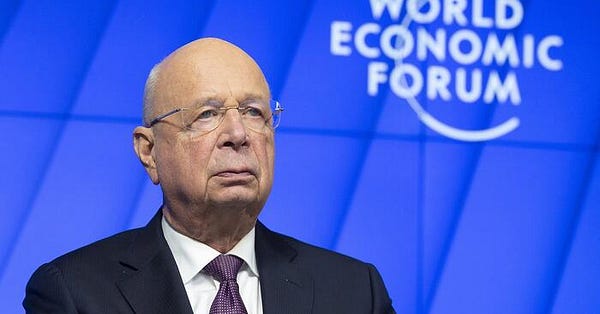WEEKLY CASH WITHDRAWAL LIMIT IN PUSH FOR DIGITAL CURRENCY... IS NIGERIA A BLUEPRINT FOR GLOBAL CASHLESS SOCIETY?
Future of YOUR money still very much under threat
By Andy Smith
WHAT is happening now in Nigeria could be seen as a blueprint for countries globally to force their populations into a cashless society.
As it pushes for the widespread use of its Central Bank Digital Currency, the eNaira, the Government is restricting the amount of weekly cash withdrawals for people and business.
In December last year, the Nigerian Government ordered those limits would be $225 per week for individuals and $1125 for businesses.
According to the digital money website Cointelegraph only 0.5 per cent of the population is using the eNaira in October 2022, a year after its launch.
Nigeria to create legal framework for stablecoins and ICOs
The Central Bank of Nigeria (CBN) has plans to bring other digital currencies within its regulatory framework as part of its report ‘Nigeria Payments System Vision 2025’. It contains the aim of ‘enhancing the cashless policy of the CBN’.
The bank predicts the use of cash will ‘naturally slow’ as the ‘mobile first generation’ becoming economically active by 2025.
By then, the report states, Nigeria aspires to have a ‘cashless and efficient payment system infrastructure that facilitates financial services in all the sectors of the economy..
Nigeria Payments System Vision 2025
Could Nigeria be an indication of what could happen in the UK?
In April 2021, the then Chancellor of the Exchequer and now Prime Minister Rishi Sunak announced the launch of a joint Treasury and Bank of England Taskforce.
Its job was to look at the possibility of a UK Central Bank Digital Currency, which has also been dubbed ‘Britcoin’.


According to a report on ‘The National’ website in July 2021: ‘The BoE-backed digital version of sterling would allow people to hold accounts directly with the central bank and insiders at the Treasury told The Mail on Sunday that it would be the biggest upheaval in the monetary system for centuries’.
The National: Rishi Sunak backs plan to introduce digital currency
While many businesses and venues are now seeing a return of cash after it being removed during the Covid pandemic as a potential health mitigation, the last few years have shown how easily the UK population was forced into using only contactless or electronic payments.
For the UK Government to succeed in overcoming resistance to the use of any new CBDC potentially, it would have to restrict the ability to withdraw and use cash, just like Nigeria is doing.
Already the EU is imposing cash payment limits of 10-thousand Euros, supposedly under new rules combating money laundering and the financing of terrorism.
European Council anti-money laundering
All this has to be seen against the agenda of the World Economic Forum, which has its annual meeting in Davos next week.
Three years ago, a senior executive of the former financial services company Finablr, Mehul Desai, gave his vision of a cashless society in an article on the WEF website.
He stated that for a cashless society to work, ‘it requires a national government – rather than banks or the like – to act as the payment provider, effectively becoming a state-backed utility’.
WEF: Benefits of a cashless society
Among those attending the WEF summit according to a confidential list of attendees obtained by the website Disclose.tv:
Godwin Emefiele, Governor of the Central Bank of Nigeria
Zainab Shamsuna Ahmed, Minister of Finance, Budget and National Planning of Nigeria
Isa Ali Ibrahim Pantami, Minister for Communications and Digital Economy of Nigeria
The UK is sending:
Grant Shapps, Secretary of State for Business, Energy and Industrial Strategy
Keir Starmer Leader of the Opposition
Kemi Badenoch, Secretary of State for International Trade
Zac Goldsmith, Minister of State for the Commonwealth, Overseas Territories, Energy, Climate and the Environment,
Nicholas Lyons, Lord Mayor of the City of London,
Rachel Reeves, Shadow Chancellor of the Exchequer
Richard Moore, Chief, Secret Intelligence Service (MI6)
Tony Blair, Prime Minister of the United Kingdom (1997-2007); Founder, Tony Blair Institute for Global Change


Will the UK delegation be seeking to protect the future use of cash or advance the cashless society?
Will the UK Government a fair and balanced debate on any move to a cashless, CBDC oriented society and will that get a fair and balanced analysis in the mainstream media?
You decide.





The only way to beat it - do not comply. I do not see any other option.